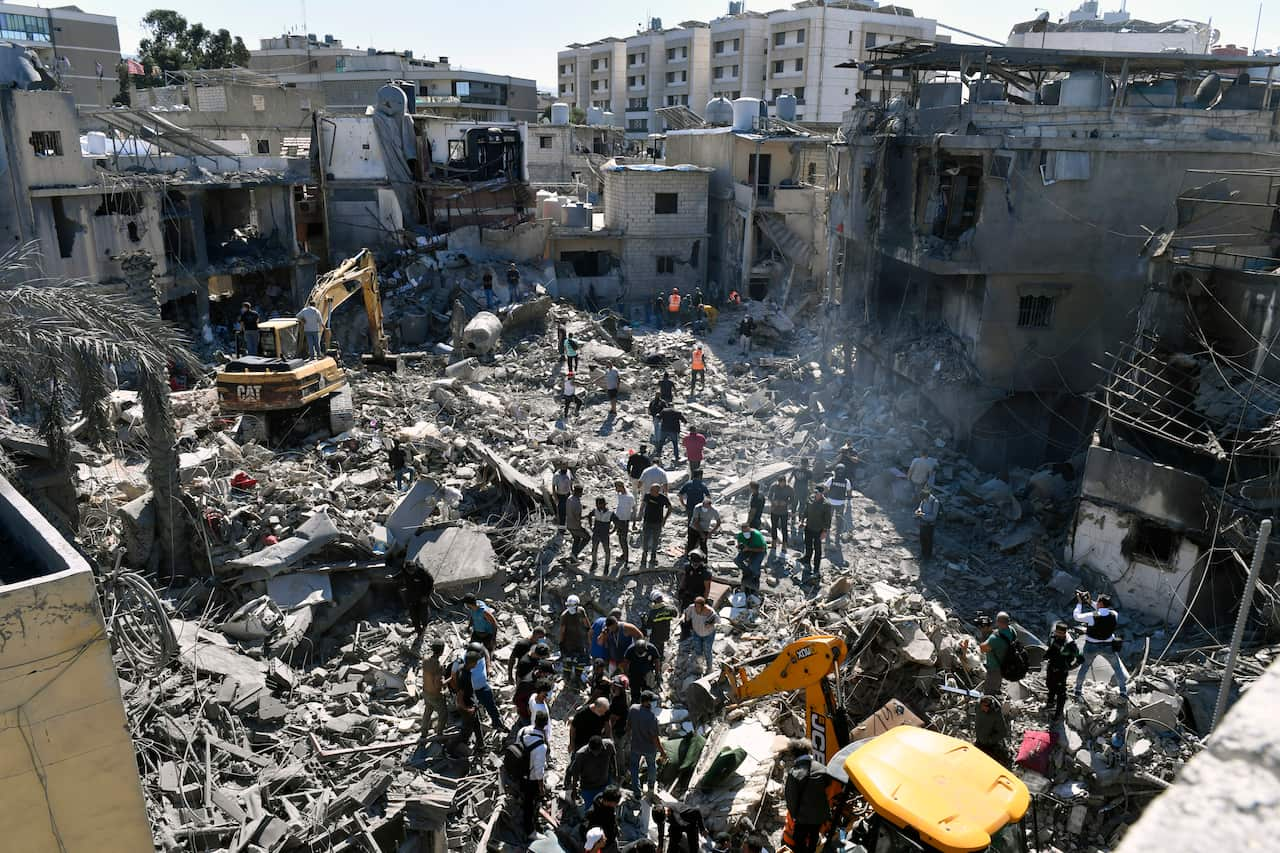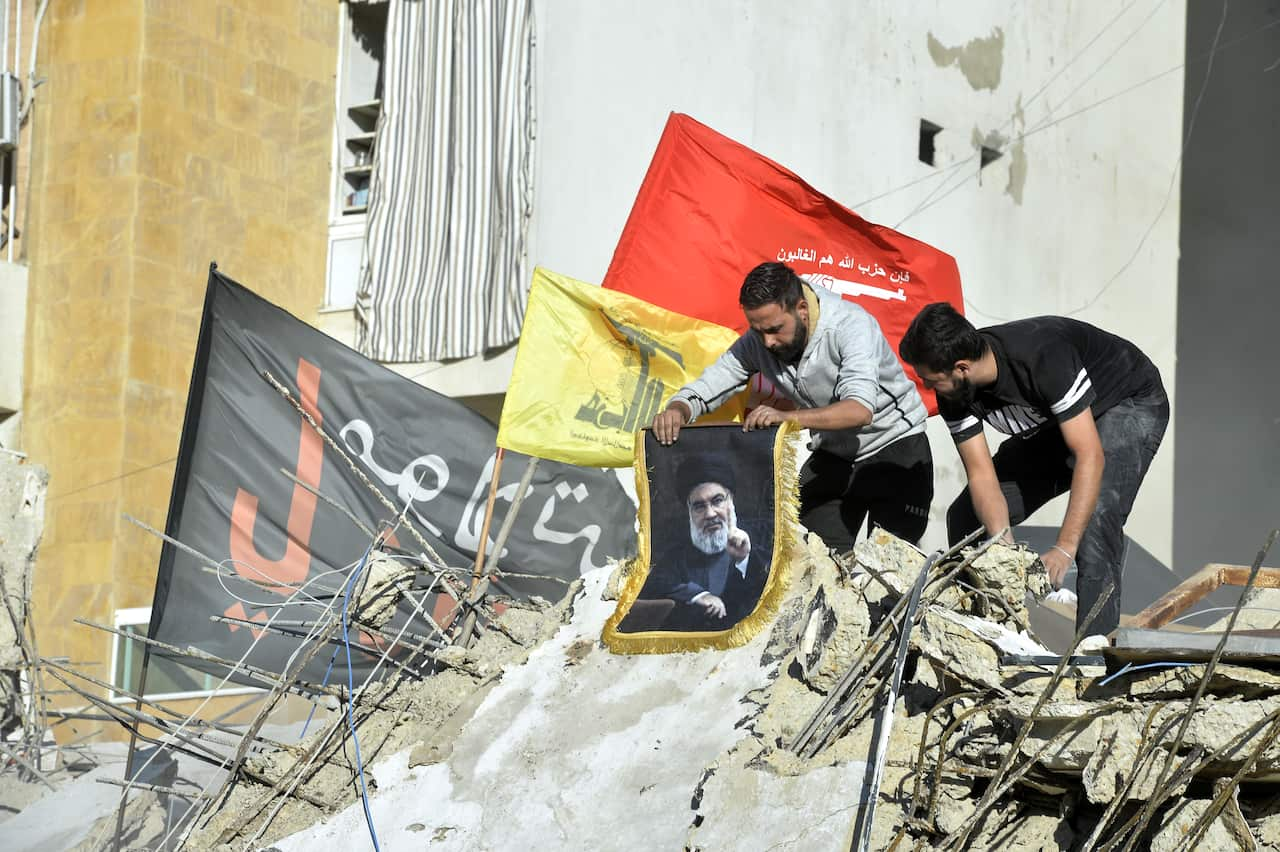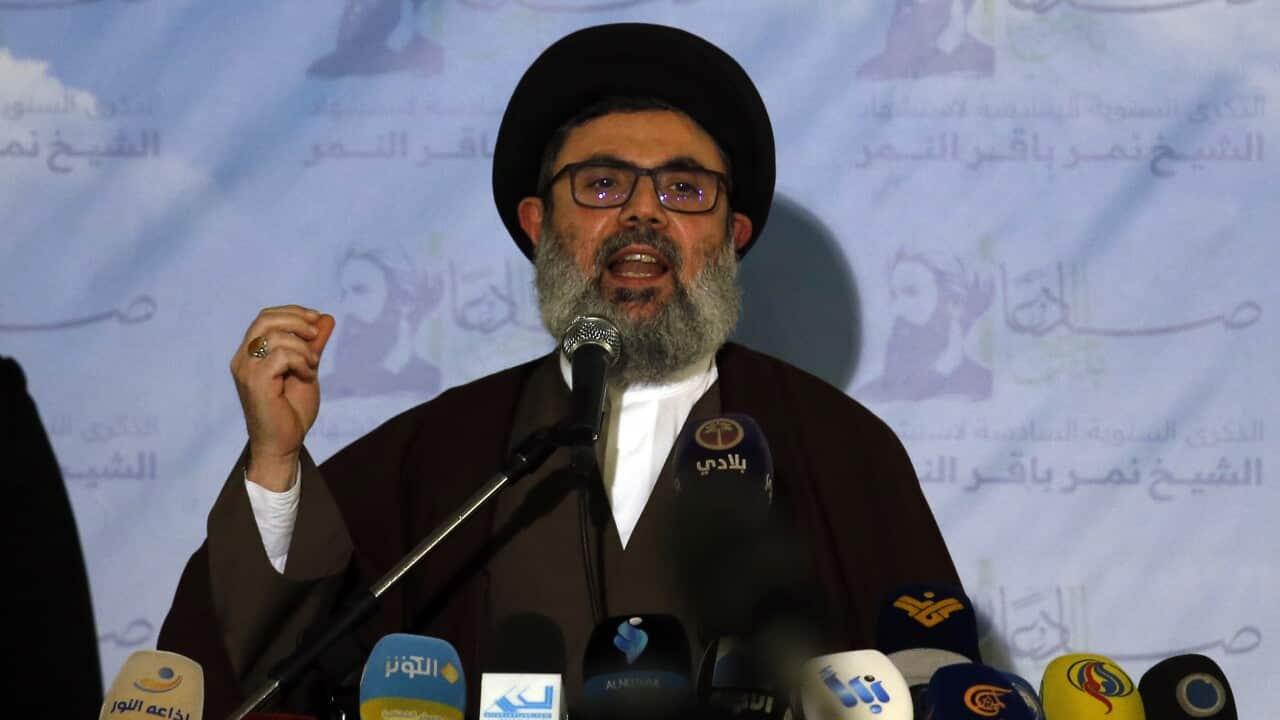Israel’s military confirmed on Wednesday the killing of Hashem Safieddine, the presumed successor of Hezbollah chief .
“It can now be confirmed that in an attack approximately three weeks ago, Hashem Safieddine, the head of Hezbollah’s Executive Council, and Ali Hussein Hazima, the head of Hezbollah’s Intelligence Directorate, were killed along with other Hezbollah commanders,” the military said in a statement.
Hezbollah has not yet issued a statement regarding the claim.
On 8 October, Israeli Prime Minister Benjamin Netanyahu said that the military had “taken out” Safieddine without specifically naming him.
Who was Hashem Safieddine, the apparent Hezbollah heir?
The deeply religious Safieddine, a cleric with family ties to Nasrallah and good relations with its backer Iran, had been the “most likely” candidate for the party’s top job.
Grey-bearded and bespectacled, Safieddine bore a striking resemblance to his distant cousin Nasrallah, but was several years his junior, aged in his late 50s or early 60s.
Safieddine, a member of the group’s governing Shura Council, had strong ties to the Islamic republic after undergoing religious studies in Iran’s holy city of Qom.
His son married the daughter of General Qasem Soleimani, the commander of Iran’s Revolutionary Guards foreign operations arm who was killed in a 2020 US strike in Iraq.
The United States and Saudi Arabia had put him on their respective lists of designated “terrorists” in 2017.
Unlike Nasrallah, who lived in hiding for years, Safieddine continued to appear openly at recent political and religious events.
Foregoing his usual calm demeanour, he often broke into fiery rhetoric at the funerals of Hezbollah fighters killed in nearly a year of cross-border clashes with Israel.
In July, in a speech in Beirut’s southern suburbs, Safieddine alluded to how Hezbollah views its leadership succession.
“In our resistance, when any leader is martyred, another takes up the flag and goes on with new, certain, strong determination.”
Children killed in Beirut strike
Israel’s announcement about Safieddine comes as at least 18 people were killed, including four children, in an Israeli strike near Beirut’s main government hospital, according to Lebanon’s health ministry.
“I am appalled,” United Nations High Commissioner for Human Rights Volker Türk said in a statement, insisting that “the fundamental principles of international humanitarian law concerning the protection of civilians must be respected”.
At least 18 people, including four children, were killed in an Israeli strike near Rafik Hariri University Hospital in Beirut, the Lebanese health ministry said. Source: EPA / Wael Hamzeh
Türk stressed that “in the conduct of military operations, all feasible precautions must be taken to avoid, and, in any event to minimise incidental loss of civilian life, injury to civilians and damage to civilian objects”.
“Hospitals, ambulances and medical personnel are specifically protected under international humanitarian law because of their lifesaving function for the wounded and the sick,” he said.
“I repeat the UN’s call for an immediate cessation to hostilities, and remind all parties that the protection of civilians must be the absolute top priority.”
The Israeli military said its jets hit a Hezbollah target close to the Rafik Hariri University Hospital but denied targeting the hospital.
However, Jihad Saadeh, director of the hospital, said that due to the Israeli attack, nearby debris, probably from heavy ammunition, had caused damage to the medical facility.
While there were no casualties among the staff, Saadeh said that efforts to rescue people in front of the hospital were ongoing.
The Israeli military said its jets hit a Hezbollah target close to the Rafik Hariri University Hospital but denied targeting the hospital. Source: EPA / Wael Hamzeh
Is a ceasefire possible?
Lebanon’s Hezbollah movement said on Tuesday there would be no negotiations while fighting continued with Israel, and it claimed sole responsibility for a
The group “takes full and sole responsibility” for targeting Netanyahu’s house, Mohammad Afif, head of the Iranian-backed militant group’s media office, told a press conference in the southern suburbs of Beirut.
Israel said a drone was launched at Netanyahu’s holiday home on Saturday. Netanyahu was not there at the time, but he described it as an assassination attempt by “Iran’s proxy Hezbollah” and called it a “grave mistake”.
“And we confirm our position, no negotiations under fire. What is not taken by fire is not given with politics,” Afif said.
This diplomatic shift follows Hezbollah’s calls for a ceasefire earlier in October and reports from the Lebanese government that Hezbollah leader Hassan Nasrallah had agreed to a temporary ceasefire before Israel assassinated him on 27 September.
At least 2,546 people in Lebanon have been killed and 11,862 wounded since 7 October 2023, according to Lebanon’s health ministry.
Hezbollah has also for the first time acknowledged that Israel had taken some of its fighters hostage since it launched a ground invasion in south Lebanon and said that Israel was responsible for their wellbeing.
Hezbollah had not captured any Israeli soldiers but had come close, Afif said.
He also denied that the group’s Al-Qard Al-Hassan Association was involved in financing Hezbollah salaries or weapons and would fulfil its obligations to clients in full even after Israel targeted it with some 30 strikes on Sunday.
Israel and the United States say Al-Qard Al-Hassan, which has over 30 outlets across Lebanon, is used by Hezbollah for money laundering and terrorism financing, assertions the group denies.


